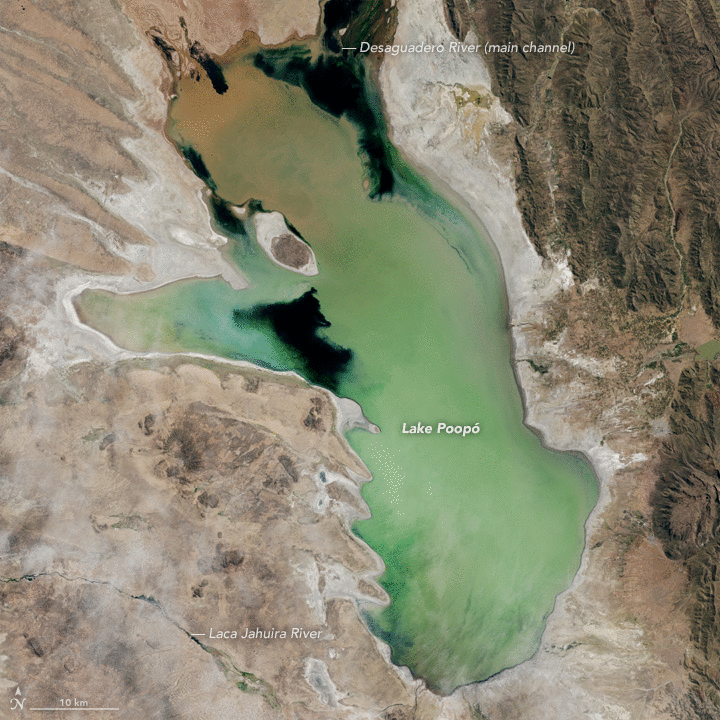Bolivia’s second-largest lake, Lake Poopo, has completey dried up…
Another victim of climate change? Many of those who lived around the lake have become climate refugees, forced to move.

Water becomes scarce… And lakes disappear around the world. One of the worst example is Lake Poopo in Bolivia, which has almost completely dried up in 20 years. Insane, no? Read the story below!
A livelihood in Bolivia’s high plains has suddenly disappeared, and a population that relied on the dried-up lake for centuries suddenly became refugees with nowhere to go.
The civilization that once thrived around Lake Poopó was forced to leave when the waterway dwindled, dying a slow death that was blamed on a lethal combination of drought, earth changes and failures by the government to keep it alive.
Why is Lake Poopo Vanishing?
Sitting more than 12,000 feet above sea level, Poopó shrunk for years before vanishing entirely just months ago.
Since 1985, the lake warmed nearly half a degree Fahrenheit each decade, and the evaporation got worse and worse.
Periodically, the lake would be nearly empty and the fish would die, and now the fishers are on their way out, officially becoming the latest refugees of climate change.
Over the past two years, many of the indigenous Uru-Murato people who lived in the area went to work in the lead mines or salt flats 200 miles from the lake. At this point, fewer than 650 Uru-Murato still live in the three villages where they once flourished.
The saline lake spanned as much as 1,200 square miles, but its shallow nature allowed it to evaporate rather quickly, especially during El Niño years.
At the end of last year – a year in which El Niño was very strong – Lake Poopó was declared drained.
Scientists have also placed some of the blame on officials who made several missteps when they had the chance to preserve the lake.
The result of those failures, paired with the impacts of earth changes, was the permanent loss of Bolivia’s second-largest lake.
People forced to move: This may become a new normal for the future.











